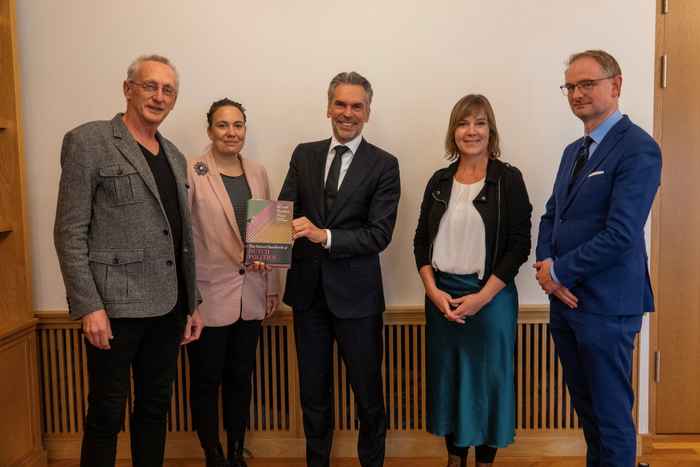Sarah de Lange presents 'scientific bible' on Dutch politics to Prime Minister Dick Schoof
20 November 2024

The Netherlands was known for its stable, consensus-driven politics, but over the past fifty years, we’ve seen significant changes.Sarah de Lange
Sarah de Lange emphasizes that these kinds of Oxford Handbooks are scientific bibles, providing insights into the current state of knowledge and highlighting unanswered questions.
New divisions
Shifts in demographics, the economy, and culture have blurred old divisions and revealed new fault lines that influence political attitudes and voting behavior. These include divisions based on ethnicity, education level, location, and gender. Additionally, new technologies have profoundly transformed the media and information landscape, presenting challenges that both politicians and citizens must learn to navigate.
All of this has impacted aspects such as the Dutch party system, coalition formation, and the relationships between the executive and legislative branches. This handbook provides insights into these changes within a political system once renowned as the prime example of a consensus or consociational democracy.
Political scientists from across the Netherlands
The book is edited by Sarah de Lange (University of Amsterdam), Tom Louwerse (Leiden University), Paul ’t Hart (Utrecht University), and Carolien Van Ham (Radboud University), with contributions from political scientists across the Netherlands.
Among those contributing from the University of Amsterdam were Armèn Hakhverdian, Daphne van der Pas, Eelco Harteveld, Franca van Hooren, Giedo Jansen, Henk Van der Kolk, Liza Mugge, Matthijs Rooduijn, Paul de Beer, Tom van der Meer, Wouter van der Brug, and Zahra Runderkamp.